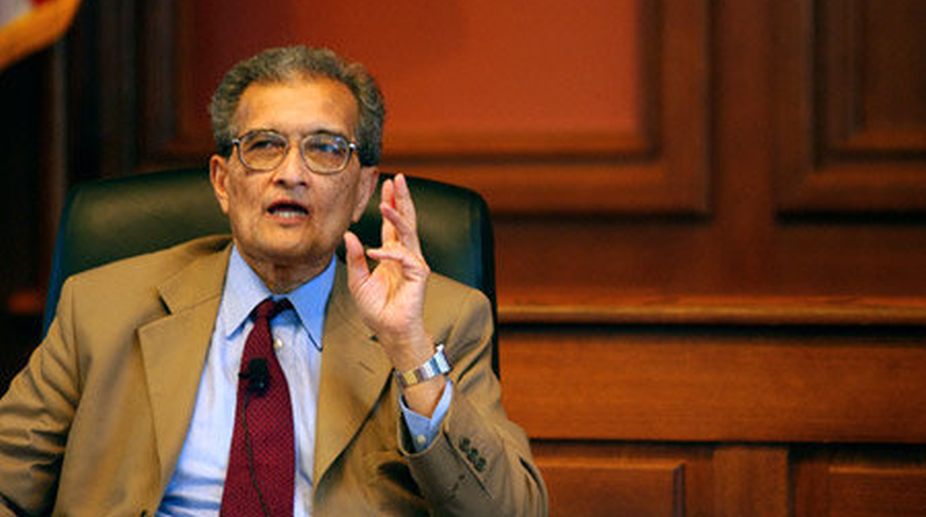Healthcare platform MediBuddy achieves break-even in FY24
The company said its user base has witnessed a growth of 2.4 times over the last three years, serving close to 3 crore people with over 1 crore subscribers.

Nobel laureate Amartya Sen (PHOTO: Facebook)
Although India has made great progress on the economic front, our progress in healthcare has so far been extraordinarily limited, Nobel laureate Amartya Sen said at an international conference here on Saturday.
"It is disconcerting to note that despite being the world's largest democracy, we are far from achieving reasonably good standards of healthcare delivery in India even today," Sen said in his keynote address at the Tata Memorial Centre's three-day "Platinum Jubilee Conference" on the theme "Healthcare: A Commodity or Basic Human Need".
There is a complete and total lack of public discussion on the subject and the issue has not been raised by any political party during the elections, he rued.
Advertisement
"Our neighbouring countries — Bangladesh, China and Nepal, with similar or even lower income levels than India, have better health and social indicators, including lower infant and maternal mortality rates, better percentage in girl education and improved sanitation facilities," Sen lamented.
While privatisation of health sector may play a great role, it cannot be our solution, as it has caused exploitation of poor, ignorant patients at the hands of private doctors, which needs to be stopped, he said.
Further, the "moral hazard" involved in subsidising private hospitals for unverified treatments also needs radical reforms, he added.
"No country has ever successfully provided universal health coverage without the strong support and commitment of the public health sector," he continued.
Thus, public healthcare should include the social determinants of health, such as nutrition, sanitation and social equity.
"A higher proportion of GDP in healthcare, more recognition for the central role of public healthcare, better work ethics, along with the urgent need for efficient, sustainable initiatives can be the only way to bring about a change, Sen suggested.
Advertisement